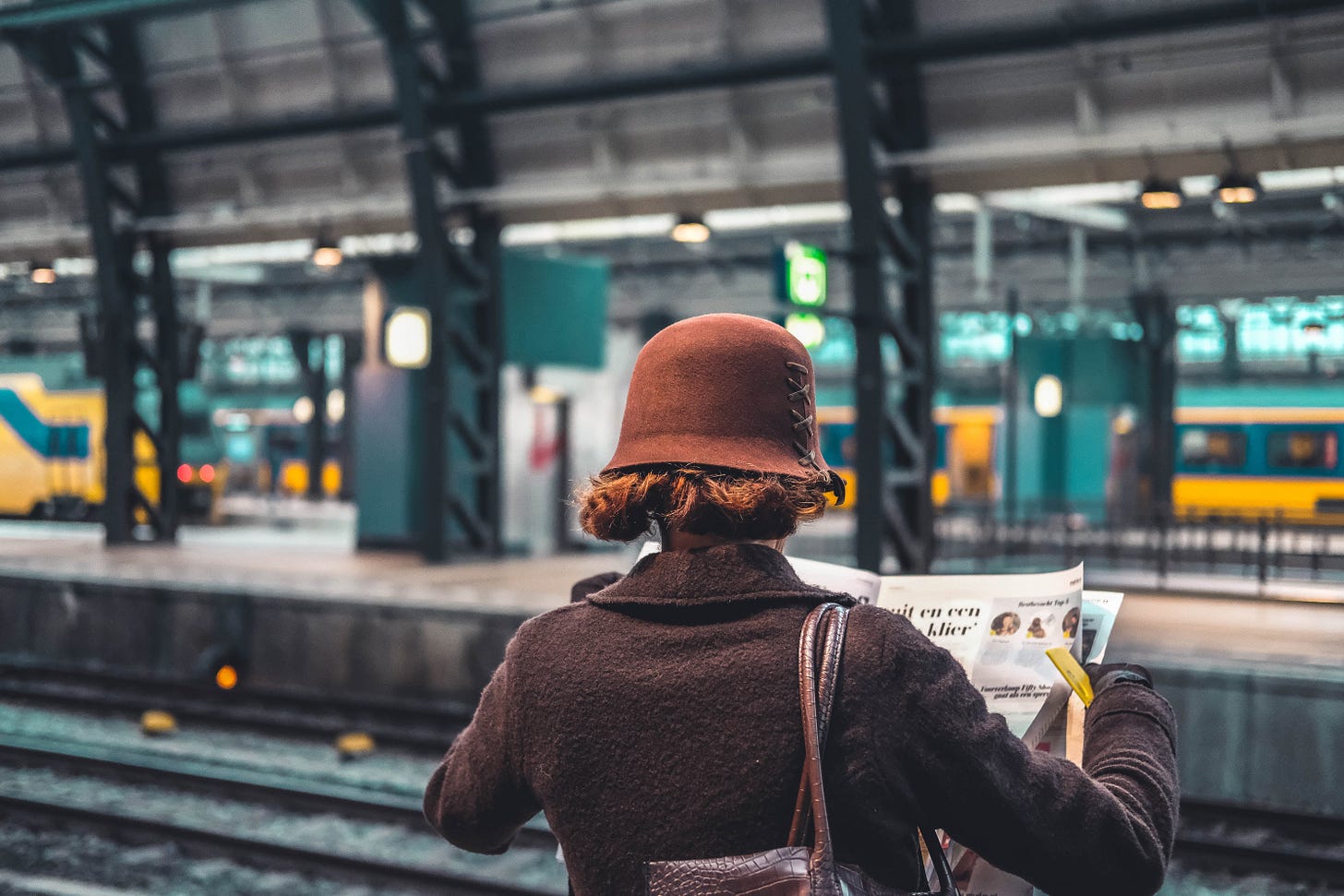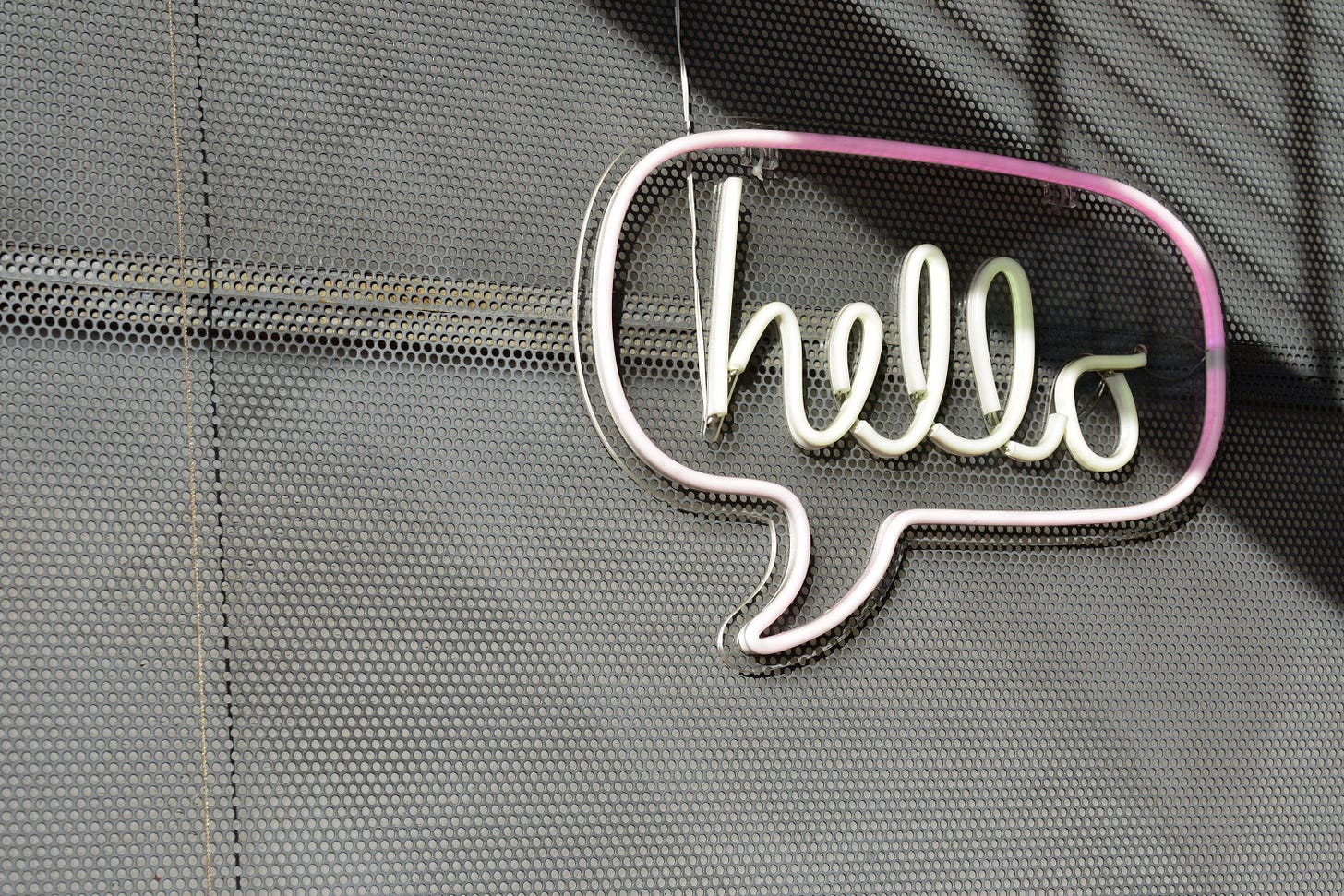#2 OWNING YOUR FRUSTRATION
How we're channelling our frustration into action + more updates on our latest goings-on.
Welcome to Visible Platform's newsletter, The Platform.
This newsletter was created as we thought it was important to keep you updated on our journey and share resources to help you recognise, cope with and heal from incidents on public harassment.
If you like what we’re doing, subscribe and share with your friends 📣
October Reflections: CHANNELLING FRUSTRATION INTO ACTION
October has been an incredibly hard month for women and many others. It seems every day the news was filled with another story of violence against women, and the devastation of the family and friends left in the wake.
Beyond the coverage, opinion pieces, police blunders, and hashtags, something that will stay with us are the impact statements made by Sarah Everard’s family. Male violence against women is an endemic, it affects every aspect of society and every gender. It harms women, men, children, families, communities and the whole of society.
This month we shared how we channel our frustrations into action. We know it can feel overwhelming when you are reminded of your own vulnerability on a daily basis, not to mention incredibly frustrating given how unjust everything feels.
We’ve been there. In fact, our frustration is what spurred us on to create Visible Platform. A recognition that we couldn’t wait any longer for someone else to fix the issue.
Because we know what it’s like, we wanted to share the steps we’ve found helpful when we’ve found ourselves overcome with frustration, and looking for a way to make a change for the better.
We’ve written a blog post all about owning your feelings of frustration. We explore how you can identify what motivates you and what drains you, and what practical steps you can take towards contributing to a cause.
We hope you find it useful and that it reminds you that you are not alone.
Platform Updates:
Press, podcasts and features:
👮 Who you can call: UK - We’ve collected the contact details of different organisations that you can contact for advice, guidance and support in the case of harassment - so you don’t have to.
📱How to Report an Incident of Harassment to the Police - We spoke with a Scottish police officer and asked them all the questions you really need the answers to when it comes to harassment. We hope this interview serves as a reminder that you do not need to go through this process in the dark or alone.
📆 Save the date: On the 9th of November between 10am-12pm, our co-founder Cait will be taking part in a roundtable talk on the British government’s Tackling Violence Against Women and Girls (VAWG) Strategy. We’ll share a link to this event on our socials closer to the time.
THE HIERARCHY OF VICTIMS: RACE + JUSTICE
On October 26th, Mina Smallman, mother of Bibaa Henry and Nicole Smallman, released a statement in response the Met Police’s apology over the handling of her daughters' missing persons cases.
The force's response to Bibaa’s and Nicole’s deaths was found to be below standard. A report by the Independent Office for Police Conduct found missing persons inquiries for both women were not progressed properly. Furthermore, two Met Police officers are charged with taking photographs of the murder scene and the victims.
Mina dismissed the Met’s apology as “hollow”. She cited misogyny, classism, and racial profiling as all having played a role in the mishandling of her daughters cases.
Missing person cases regarding women of colour have shown to get less coverage, less traction, and in some cases a lower quality of police response than missing white women. This is typically referred to as “Missing White Woman Syndrome”. Whilst the phrase refers to white women as a collective, it is not in any way meant to discredit the importance and pain of missing white women. Rather it attempts to add a deeper layer to the discussion of violence against women, drawing attention to the fact that society often possess an image of an “ideal victim” (white, innocent, middle class) and how those who do not fit this standard receive less favourable treatment.
One of our recommendations this month is a video looking into this issue, which you can find below.
The Platform Recommends:
📹 This video uses data primarily sourced from American cases but we believe the discussion it facilitates is crucial to a wider context.
📹 This month we’ve been really impressed by the #DontBeThatGuy campaign from Police Scotland. It’s reassuring to see calls for men to have a look at their own attitudes and behaviours towards women - in contrast to the burden being on women to avoid harassment themselves.
📝 Action of the month: Sign the petition to Reinstate Night Tube for Winter 2021/2022 to improve Women’s Safety traveling home in LDN.
Whilst it is important to recognise the tube itself, much like other public transport, is not perfect and more needs to be done to protect women when using it, the running of a well-lit and well-connected tube network, with platform cctv and appropriately trained security staff serves as the best transport option to ensure millions of women across London can get home safely in the evenings and at night this coming winter. The reopening of the night economy after lockdown without this infrastructure is a disservice to women's safety.
💡 Something we think you might find interesting: The Campaign for Family-Friendly Trains is a group of parents and carers working for better facilities for children and their families on the UK rail network. Check out their website here, or tweet them here.
Visible Platform is all about creating a community, so if you want to talk to us please email us on: info@visibleplatform.org
You can also message us on social media:
Instagram | Twitter | LinkedIn | Facebook
P.S. You’re receiving this because you’ve previously expressed interest in our work. But if you’d rather not hear these updates, you can unsubscribe at any time!






